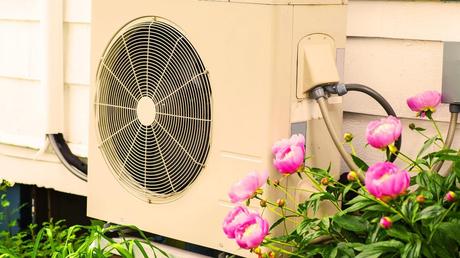
Last Updated on September 13, 2023 by Kravelv
Heat pumps are an efficient way to save on energy costs while providing both heating and cooling for your home, but sometimes you might hear sounds that indicate an issue with your system.
While your unit makes noise as a normal part of its functioning, strange or weird noises can signal a need for a professional check up. Whistling noises may be the result of dirty fan blades or objects obstructing airflow through air vents and registers, which is easily remedied by cleaning these areas and removing items that prevent airflow.
If you would like to hire a professional to repair your heat pump, visit https://andersonair.com/residential/heat-pump-repair/.
Rattling
Rumbling noises could be caused by any number of things, from loose cover panels that need to be tightened to refrigerant piping that needs to be loosened.
Swooshing noises may be heard when defrosting your heat pump, which is normal and should only last a few minutes. But any ongoing swooshing signals the compressor has worn down significantly, and replacement may be required.
A rattling noise could mean that debris has built up within its air ducts and needs clearing out. Ensure you clear away any furniture, boxes or objects that block airflow between registers and vents. You may need to go into your unit to clean out any debris inside.
Vibration
An electric heat pump making an audible vibrating noise should be treated as a signal that something has come loose and needs tightening, or else vibrations could wear down equipment prematurely and lead to its breaking.
When hearing such sounds, it is wise to shut off the unit immediately and locate any loose pieces so you can tighten any screws or nuts holding them in place before continuing to use your heat pump.
An audible humming sound when starting or stopping your heat pump cycle is normal and should only last briefly. If it's louder than usual. It could be caused by a problem with the internal electrical components like contactors or coils.
Whistling
A whistling sound indicates air is moving too rapidly through your system, and changing or cleaning your air filter on a regular basis as well as not placing furniture or boxes near vents or registers will help minimize this.
Buzzing
As your heat pump operates normally, you should hear a soft humming noise caused by electricity flowing between coils and motors transferring power, but this noise shouldn't be excessively loud or prolonged.
Whenever an annoying humming becomes noticeable, it may be time for repair. Your technician will inspect the unit carefully for symptoms of damage or wear and tear before beginning their repair efforts.
Your buzzing sound could be due to debris in the system's air ducts. This should be an easy fix; simply regularly change out air filters or move boxes and furniture that could block airflow through vents and registers to reduce the noise.
Metal against metal
When your heat pump emits a loud metallic sound, it might be a sign that something inside its fan became loose and collided with the blades or a foreign object, such as a screw or a piece of ice. In the event of such a noise, shut off your system immediately so one of our technicians can inspect your system.
Another cause may be a misaligned fan blade which causes friction with another metal area on the unit, eventually leading to its destruction and that of its motor as well.
Grinding noises could indicate equipment needs lubrication, while high-pitched screeches could indicate that its motor may have died off, so having it checked out immediately is also important.
Call a professional
Though it can be tempting to ignore unusual sounds in their home, recognizing these could help save you costly repairs. Knowing which sounds are typical for a heat pump makes it easier to identify any signs that there might be an issue, and professional HVAC maintenance can then take care of the issue before it worsens further.
